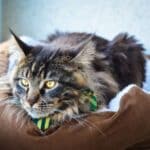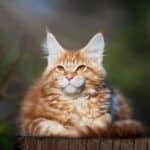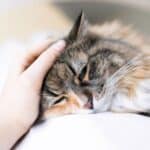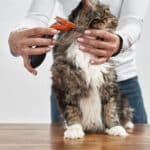While many people are allergic to various foods and should avoid ingesting them, cats can also have food allergies. Cat breeds such as the Maine coon may have many different types of food allergies, and it is vital to be aware of the possible risks.
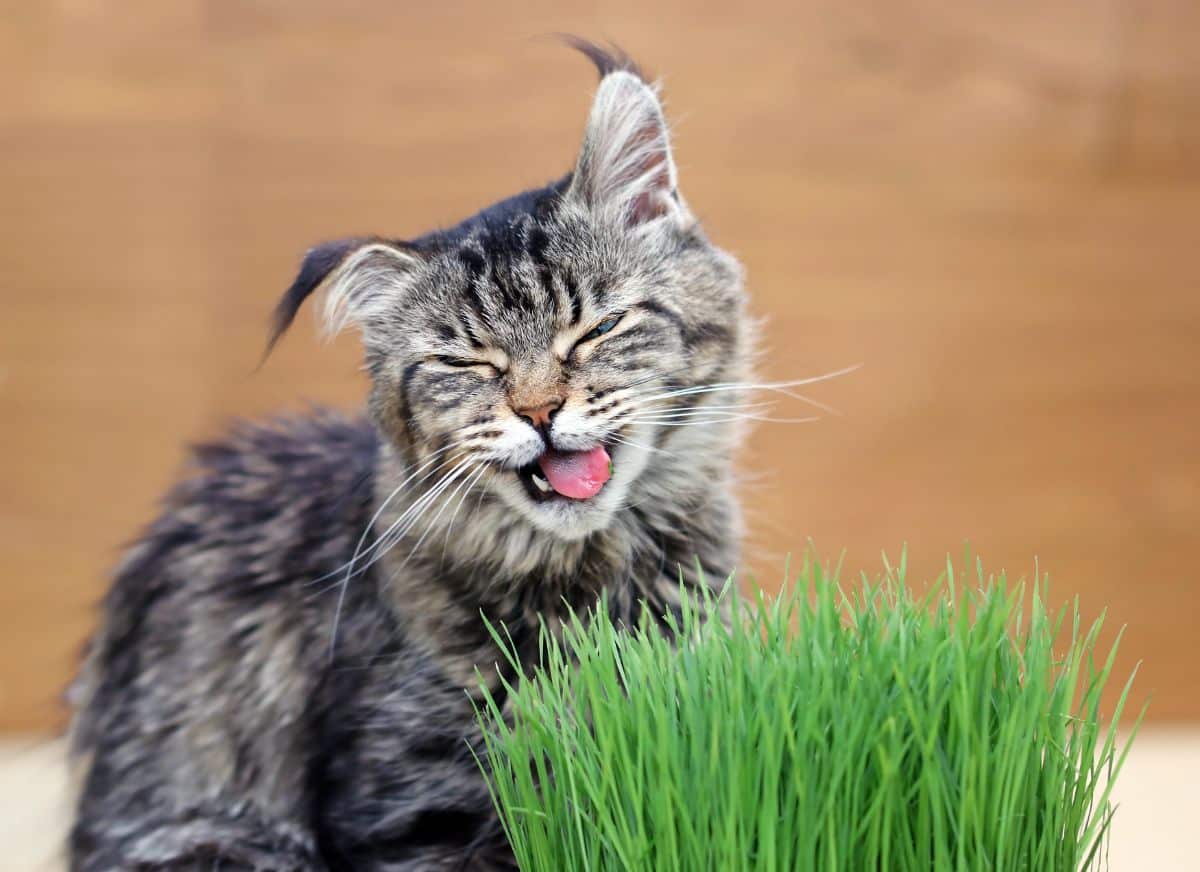
Here are the most common Maine coon food allergies and the signs indicating your cat may suffer from a food allergy.
If you suspect your cat is allergic to one of the foods listed, you should take it to a vet to receive a proper diagnosis as soon as possible.
Jump to:
Do Maine Coons Require Special Food?
Many potential food allergens are found in different cat food blends.
Cat food is a mixture of many different proteins and fillers to keep proper nutrition in your pet without being charged an arm and a leg. Common cat food ingredients to look out for are gluten, casein, soda concentrates, and ovalbumin.
These ingredients are common chemicals found in food that Maine coon cats are often allergic to.
Generally speaking, Maine coon cats are larger cars that use more energy than other breeds. They require more protein than the average cat, so you want at least 50% of their food mix to be protein.
You also want to ensure the cat's blend of food is low in fat and carbohydrates. Filler in cat mix is often high in fat, and keeping it under 20% helps to keep your cat healthier.
Wet food tends to be better for this breed than dry food. While dry food can't help strengthen your cat's teeth, wet cat food contains more fresh protein and is suitable for your cat's longevity.
What Are the Symptoms of a Cat Having Food Allergies?
Maine coon cats will demonstrate different signs if they are eating something they are allergic to. While the specific signs of your cat's allergy can vary, consistent signs of these symptoms over time may indicate a problem with their diet.
The most significant indication your cat suffers from a food allergy is itching.
Excessive scratching or constant skin inflammation are solid signs that they may have a food allergy. Cats generally don't have dry, inflamed skin year-round, so it probably means they are eating something they shouldn't be.
On top of itching, some symptoms of food allergies include:
- Hair loss
- Red bumps on the skin
- Excessive biting of the skin
- Dry or crusty skin
- Coughing
- Trauma to the skin
It should be noted that if your cat shows some of these symptoms temporarily and they go away on their own, it may not be a chronic food allergy.
Make sure to consult your vet if you see any of these signs in your cat as soon as possible. It is crucial to peg down what your cat is allergic to so that you may give them a proper diet and avoid chronic harm.
How Do You Test a Cat for Food Allergies?
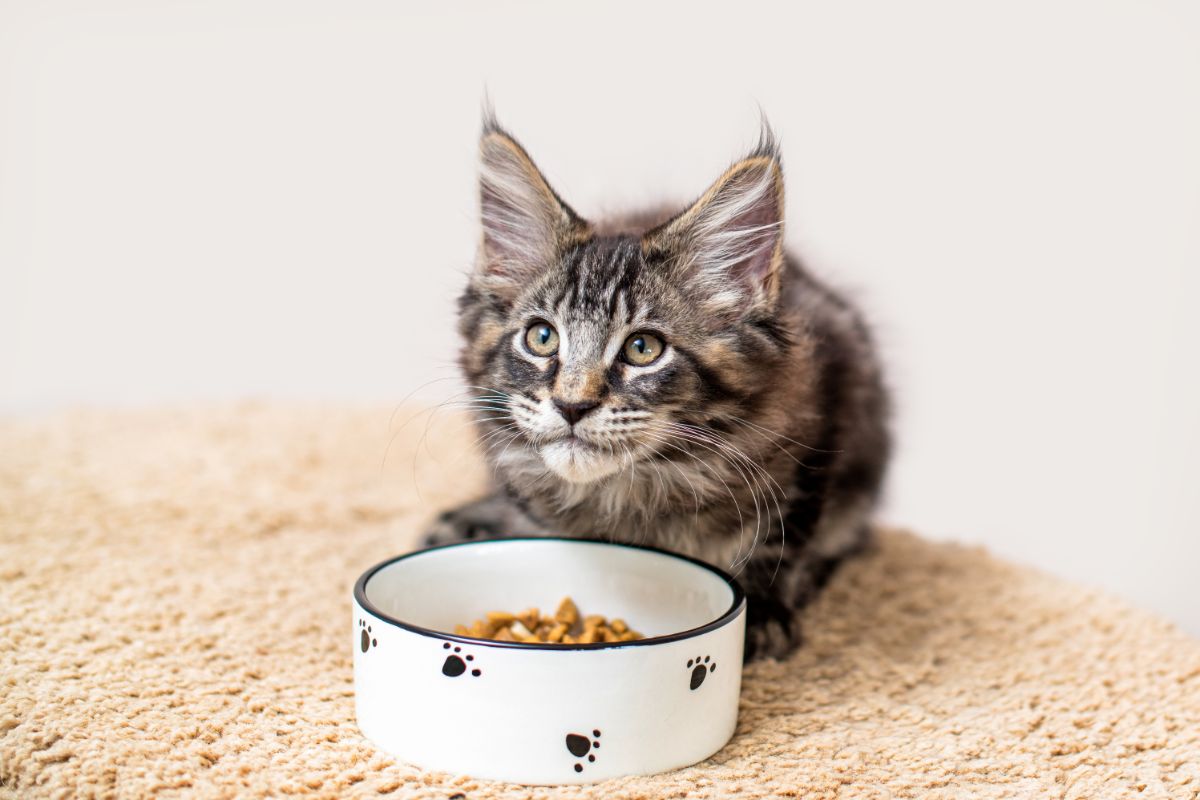
The most common and effective way to test your pet for a food allergy at home is to use trial-and-error. Choosing an ingredient to pin down and eliminate from your cat's diet, then seeing how they react to that change is a surefire way to find out what they are allergic to.
While going to a vet for assistance can certainly be helpful, a veterinarian who suspects a food allergy may tell you to test your cat this way.
An elimination diet trial may take as long as eight weeks, as your cat may take some time to show symptoms of recovery. Make sure to allow the entire test period, as it is essential to determine what is causing your cat pain.
Allergies
Maine coon food allergies are diverse. The following list covers the most common allergens.
Beef
Beef is one of the most common allergies found in Maine coon cats. This is unfortunate because beef is also one of the most common ingredients found in cat food.
Maine coon cats, much like other cats, require a healthy amount of protein in their diets. This makes food such as beef quite good for them if given in the right amounts. Unfortunately, If your cat is allergic to beef, it cannot ingest cat food with beef.
Fish
When you think of cats, one of the first things you may think of is their tendency to enjoy fish. Wild cats naturally hunt fish for food, which is an excellent protein source for their diet.
Fish is another common ingredient found in many cat foods. It is also one of the most common food allergies for a Maine coon cat to develop.
Meat Byproducts
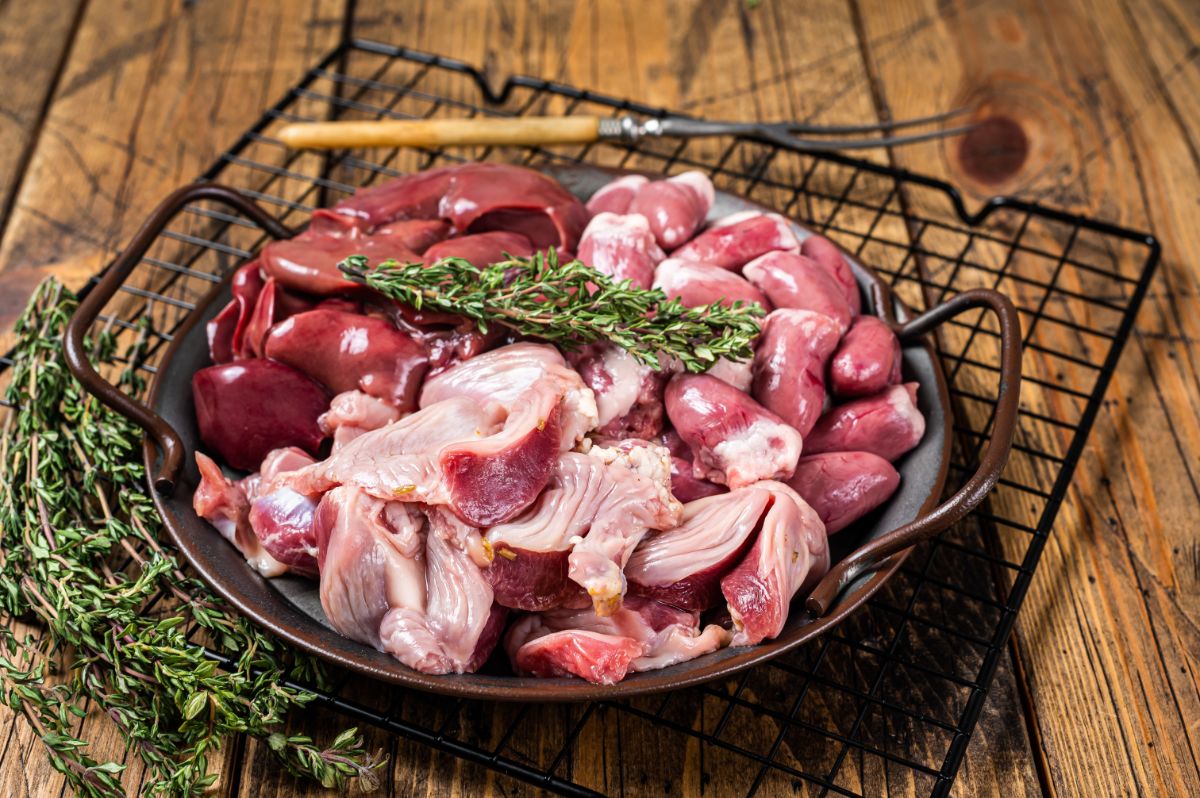
Many types of cat food will attempt to lower their prices by including meat byproducts instead of beef, fish, or chicken. Meat byproducts include meat from animals that humans consume, but usually only the parts humans don't want to ingest.
Meat byproducts typically include organs and fats from animals such as cows and chickens.
While these ingredients are not inherently bad for cats, these meat byproducts are often poorly regulated. They can contain a random mishmash of different components from different animals, and cats may not do well ingesting them.
A meat byproduct is also a tricky ingredient for cats because it is not always a consistent blend. If your cat is allergic to beef, it may be included as a meat byproduct in one batch of your cat's food blend but not in subsequent batches.
It is common for Maine coon cats to develop an allergy to the meat inside meat byproducts.
It should also be noted that meat byproducts are not the best for cats. Even if your cat is not allergic to an ingredient of one of these meat mixtures, it is recommended that you avoid this ingredient, if possible.
Other Meat Products
On top of beef and fish, Maine coon cats can be allergic to chicken, turkey, rabbit, and other meat.
While beef and fish are certainly the most common type of meat found in cat food, it is also possible for cats to be allergic to other varieties. If your main Coon is allergic to its cat food, an excellent first step is to check the type of protein in the mix.
Wheat
Wheat is a prevalent allergen that promotes a strong reaction in cats. Unfortunately, wheat is also a very common filler found in cat food.
Wheat is incredibly cheap and is often the culprit that leads to a dry food cat allergy.
Barley
Much like wheat, barley is an incredibly cheap grain found in many blends of dry cat food. Maine coon cats are prone to barley allergies, and this ingredient should be avoided when that is the case.
Corn

Corn is the most cost-effective food filler out there, as it is cheap, abundant, and provides a lot of carbohydrates for its size and price.
Maine coon cats are prone to corn allergies, and the overabundance of corn in cat food can make it difficult to avoid.
While corn is not inherently harmful to your cat, it provides a lot of empty calories that aren't necessarily helpful for them. Avoiding corn fillers in your cat's diet can lead to the ingestion of more nutrients.
Eggs
Eggs are a terrific substitute for meat, as they provide a comparable amount of protein and nutrients. Unfortunately, Maine coon cats can also be allergic to eggs.
Egg Protein
Similar to eggs, egg protein can also be problematic for Maine coon cats. Egg protein may seem functionally the same as being allergic to eggs, but it is essential to look out for on its own. Egg protein can be added to a cat food mix and listed as a different item on the list of ingredients.
Dairy
Contrary to popular belief, milk and other dairy products are bad for cats. Maine coon cats do not create the enzyme needed to break down lactose in their body, and lactose is found inside all types of dairy. This lactose intolerance can lead to indigestion and stomach problems in your cat.
On top of lactose being bad for your cat in general, Maine coon cats can develop an allergy to dairy products themselves. Cats can be allergic to milk, yogurt, cheese, and butter.
Gluten
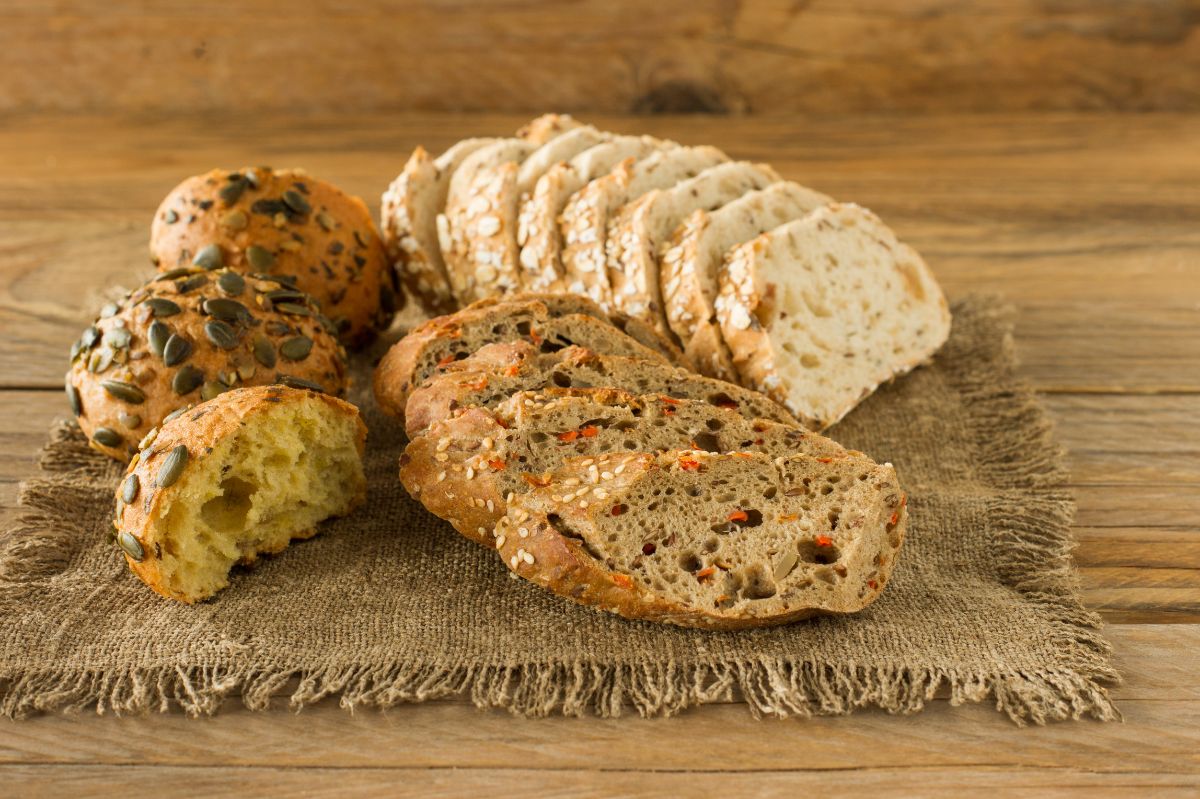
While gluten is most commonly found in dairy products such as milk and cheese, it can also be extracted from grains and even added to different meat blends. If your cat is allergic to gluten, make sure to avoid all forms of gluten, not just that found in dairy.
Potato Protein
Potato protein is an ingredient sometimes found in cat food. While potato protein can be a great plant-based alternative to help cats that are allergic to meat, Maine coon cats can also be allergic to the potato protein itself.
Grass
In general, cats should avoid ingesting grass. Eating grass is not suitable for cats, and if they are consuming it, it may be a sign that something is wrong with them.
Eating grass can make your cat sick, so take them to a vet for a diagnosis if you see them opting to eat any.
Rice
Rice is another grain filler used in different types of cat food. Maine coon cats can develop an allergy to it as well. While most cats are not inherently harmed by rice, it does not provide them with a lot of nutritional value for their diet, so it may be best to avoid it altogether.
Soy
Many cats are not born with soy allergies but can develop one over time. Soy could be the culprit if your cat begins showing signs of an allergy and you haven’t changed its diet.
Preservatives
Preservatives, much like meat byproducts, are tricky for allergies because they show a lot of variances. The preservatives found in cat food can vary based on each batch and are present in basically all cat foods.
If your cat is allergic to a preservative, looking out for what type of preservative your cat is allergic to is essential to maintaining its health.
Artificial Dye
Last but not least, we have artificial dyes.
Much like human food, cat food may contain artificial dyes to recolor the food to look more appealing. Maine coon cats may develop an allergy to this food dye.
Conclusion
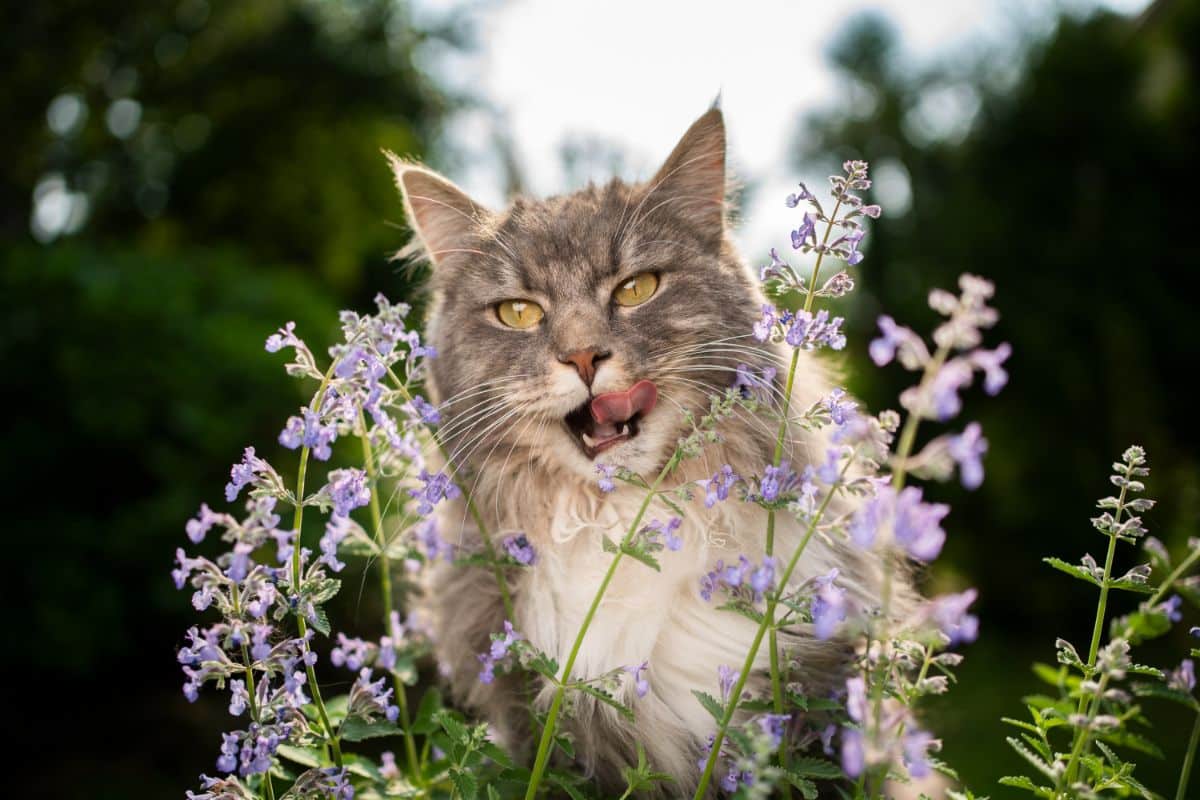
While there is a bevy of different Maine coon food allergies, all cats are other. If your cat shows signs of a food allergy, make sure to take them to a vet to receive a proper diagnosis. Veterinarians will help diagnose your cat and determine what they are allergic to.

